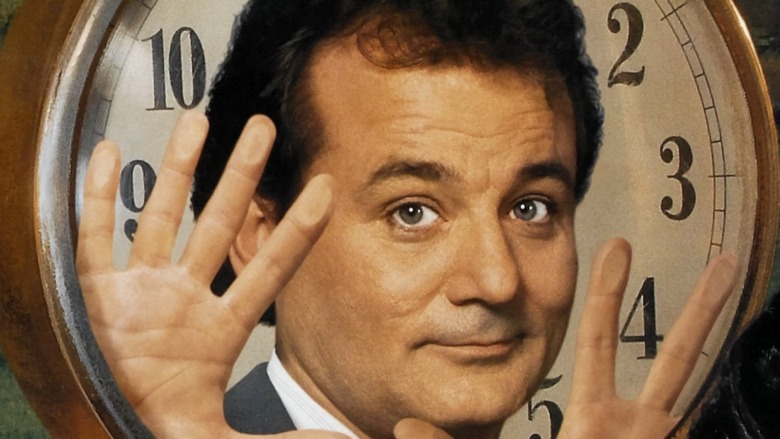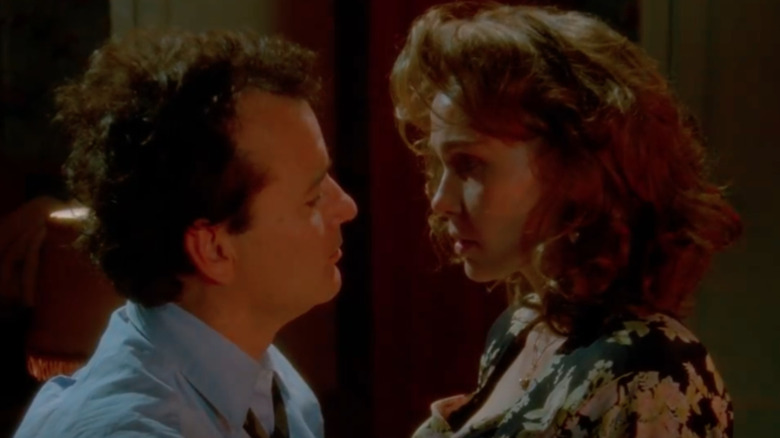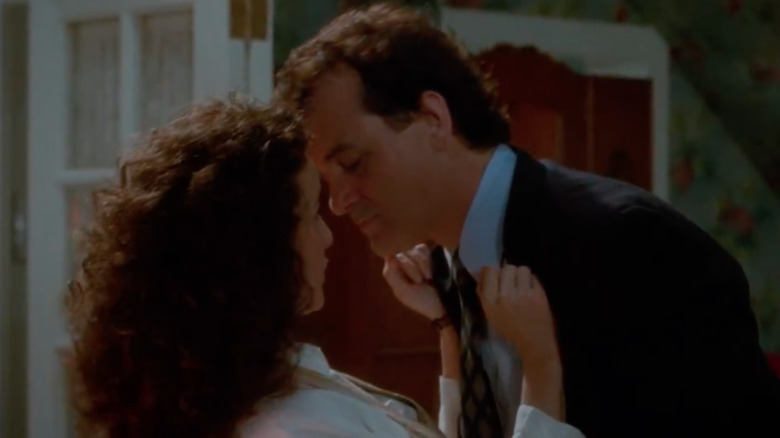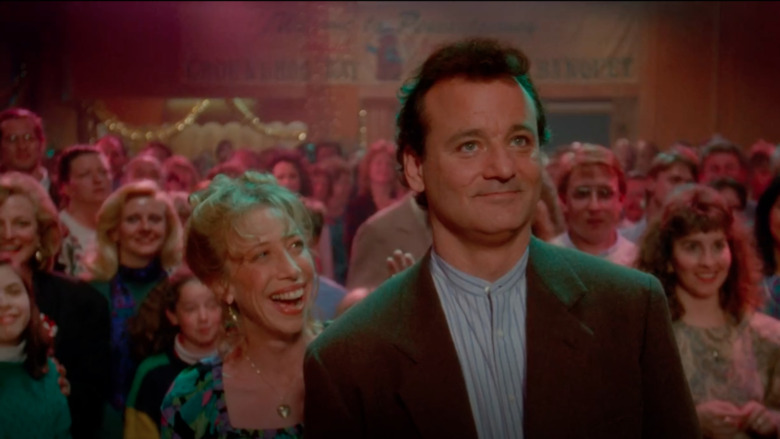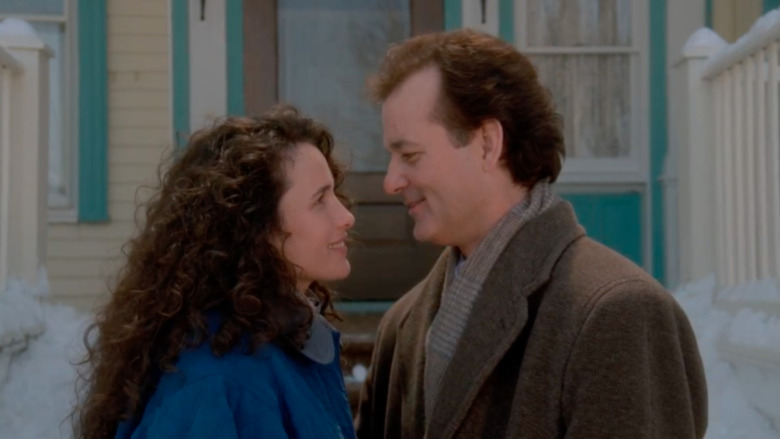Why Phil Connors From Groundhog Day Is Actually A Terrible Person
In the decades since the 1993 release of "Groundhog Day," the town of Punxsutawney, Philadelphia, has become more famous than ever for its February 2nd tradition. In more recent times, the repetition of our quarantine lives seems to have given the movie even greater meaning. Many have revisited the film during the pandemic, inspiring countless gifs, memes, and tweets. The movie's popularity has persisted as some continue to call it one of the greatest comedies of all time, while others still seek to answer how long Phil was in the time loop. Its imprint can be detected on films as diverse as "The Family Man," "Sliding Doors," "Palm Springs," and the Oscar winning short "Two Distant Strangers."
Unfortunately, the one crucial fact everyone seems to be overlooking is that the film's main protagonist Phil Connors (Bill Murray) was an unrepentant, egotistical jerk. Sure, the movie frames his journey through that one endless day as one of self-improvement, but on closer inspection, you might start to think he exited his consequence-free existence a bigger self-absorbed monster than when he went in.
Phil Connors was a #MeToo nightmare who manipulated and pressured countless women into his bed
As writer Tessa Rapaczynski points out in a Medium post, Phil's crude jokes, misogyny, and sexual harassment are on display from the very beginning of the movie. He refers to his co-anchor as "hairdo," asks his producer Rita Hanson (Andie MacDowell) if she wants to help him with his "pelvic tilt," and follows up by checking if she "slept okay" without him. His sexism is bad enough before the time loop takes hold, but once he gains the power of omniscient foresight he happily abuses it to manipulate several women into sleeping with him.
Of the few victims we see, there's Nancy Taylor (Marita Geraghty), a local who he deceives into believing they are old classmates. There's also a blonde woman he dupes into wearing a French maid outfit to a movie screening. These are the only women we see, but certainly there were numerous other unassuming sexual partners he hoodwinked without once considering their autonomy or informed consent.
That all brings us to his stalker obsession with Rita, and the odious lengths he goes to in order to sleep with her.
Phil tries to force himself on his producer Rita in his hotel room
Rita is Phil's producer and he's the on-air talent — they're co-workers with a clear power dynamic. As the loop continues, he launches a fact-finding mission to gather as much information about her as he can to use in his deception. After tailoring an entire day to her preferences, he finally has her in his hotel room and proceeds to force himself on her, even after she has said numerous times that she wants to leave. The increasingly uncomfortable moment reaches a peak as his insistence is met with the painful, tension-filled laughter of a woman who is clearly uncomfortable and trying to gently extricate herself from an awkward situation.
It's only when Phil takes the charade a step too far and proclaims "I love you" that Rita realizes the fraud being perpetrated. Without even comprehending the extent to which he has lied to maneuver her into his hotel room, she angrily proclaims his behavior to be despicable — which it objectively is. He has exploited his bizarre circumstances and their working relationship in order to get her into bed and his repeated attempts to do so after this initial failure illustrate his lack of guilt or remorse at his actions.
Phil begins doing good deeds only so that he can be adored by the town
Finally, we come to the redemption arc, as Phil tries to be a better person. So what if he was a sexual harraser for decades? After a few years he got his act together and that's all the matters, right? Well, let's take a closer look. When Phil starts doing altruistic errands around town, he knows that there are no long-term effects and it's not having any lasting change. The only tangible thing it accomplishes is making him the center of adoration, gratitude, and worship of every single person in town — and that's probably his true motivation.
For example, when he catches a young boy falling out of a tree and the child runs off in shock, Phil shouts after him "What do you say? You have never thanked me!" It's not just enough that he saved the boy, he wants the gratitude. Why else would he go to a ridiculous party every night to hear everyone praise and thank him for his good deeds? If it was enough to simply have helped someone, why would he purposefully put himself in a situation to be showered with adulation? He knows that's what's going to happen because he does it every night, so any modesty he feigns is also an act.
Phil declares that he wants to stay in this town after finally escaping the time loop
And finally we come to the end of the story, in which — after countless years — Phil has finally escaped his circumstances and moved forward to February 3. So what does he do with his new freedom? He tells Rita, "Let's live here. We'll rent to start." That's right — he wants to keep living in town!
And why wouldn't he? As he himself said earlier in the movie, here he is a god. He knows the deepest desires and darkest secrets of every single person in town, and therefore holds an immense amount of power and influence. Putting aside the fact that he doesn't even consider if Rita is willing to give up her entire life and career to move, the fact that he chooses to stay in Punxsutawney after everything is clear proof of his continued selfish and egotistical nature.
